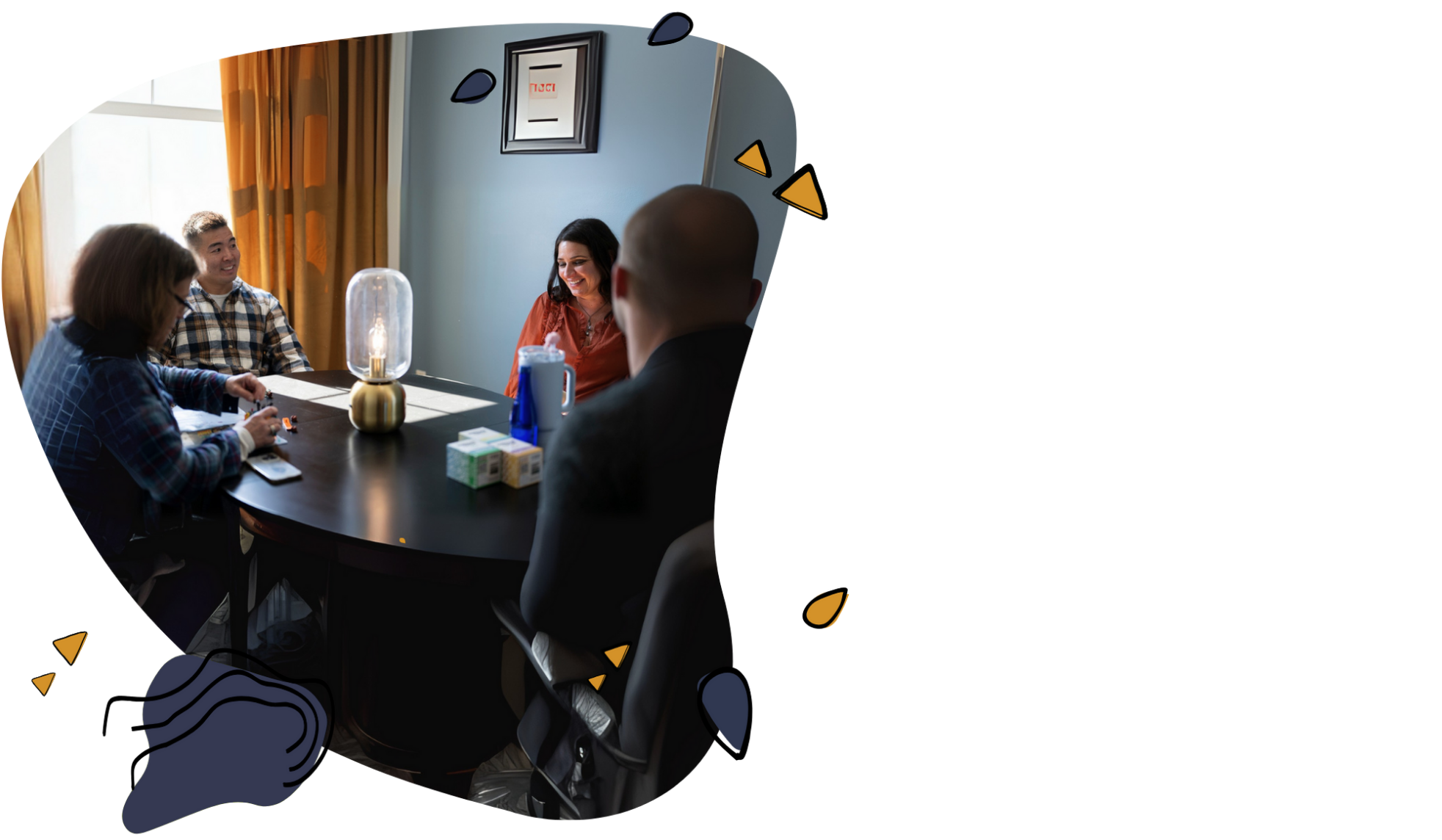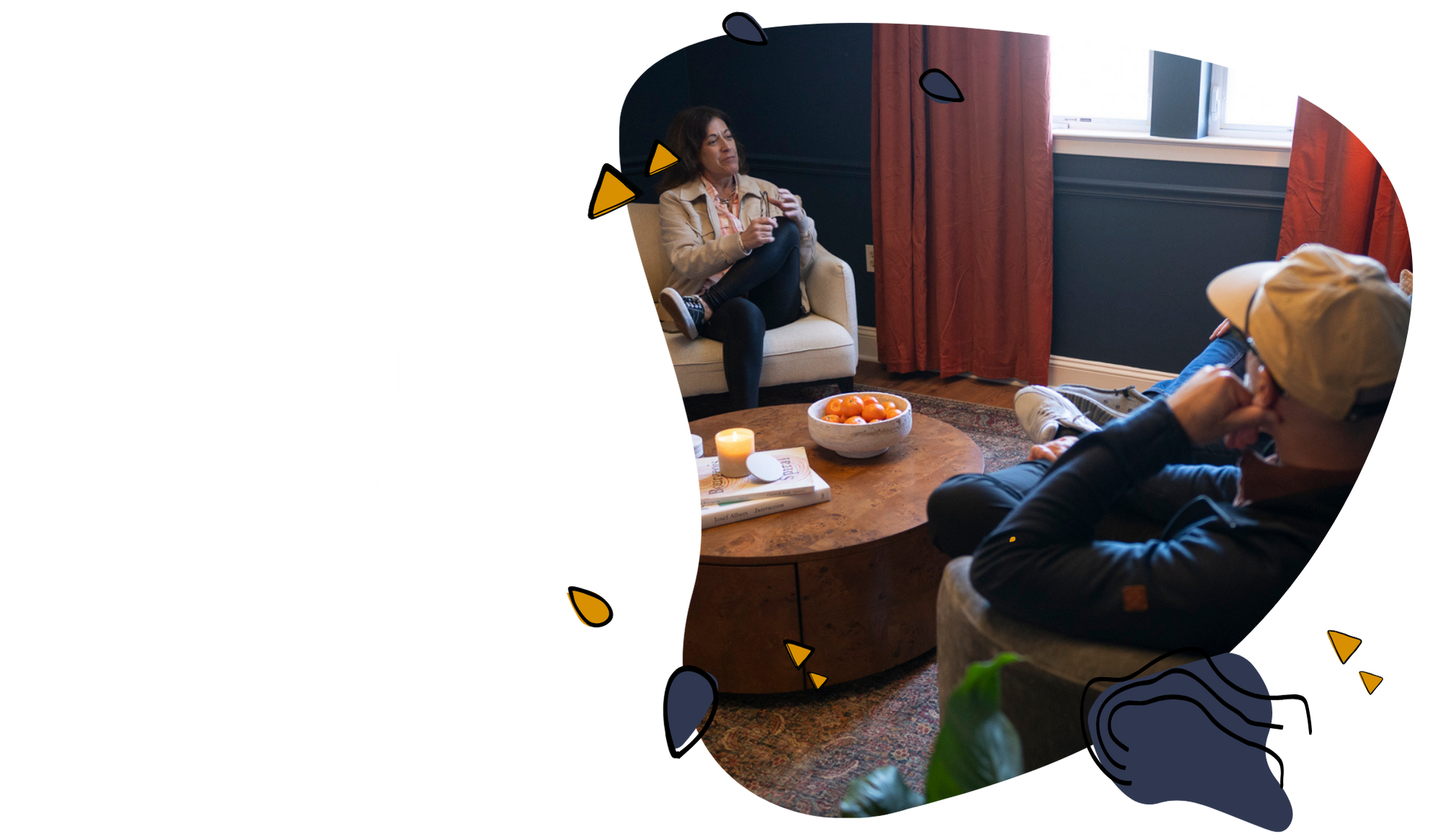
Therapy And Counseling For Kids
Finding the right kind of support can be overwhelming.
When your child is struggling, it affects the whole family. At GIA, we support kids and the people who love them. Our approach is relational, conversational, and specifically tailored to the needs of the entire family.
Our Approach to Children’s Therapy
The best approach to therapy depends on your child’s age, their behaviors, and what's going on below the surface. Our family therapy team, based here in South Jersey, will take the time to get to know your family and build a plan that fits your child’s unique needs. For kids 4 and up, approaches might include:
-

Play Therapy
Play is the most natural form of communication for younger children. In therapy, it helps them express big feelings, work through difficult experiences, and learn new ways to cope with stress.
-

Cognitive Behavioral Therapy (CBT)
CBT is an effective approach for school-aged children and teens. It helps them connect the dots between what they think, how they feel, and how they act. By teaching them to catch unhelpful thoughts and respond differently, they gain confidence.
-

Family Therapy
We use family therapy when a child's struggles are impacting the family, or when changes in the family's dynamics can help the child. We believe that the family is a system—a child’s behavior affects the family just as the family’s responses significantly impact the child’s behavior. By working with the entire family, we can create a supportive environment that allows your child to thrive.
Why Choose GIA For Your Child?
We know that in any family, one person’s pain affects everyone. That’s why we take a family approach, involving parents and caregivers from the start.
Whether your child needs individual support, family sessions, or a combination of both, GIA’s family therapy team, located in Somers Point, NJ, offers compassionate, objective support to help your family heal and grow. And we mean every family, blended, adoptive, LGBTQ+, large, small, or somewhere in between, you’re welcome here.
What To Expect At GIA
-

We're your therapists next door, ready to help you reset your relationships and rewrite your story.
-

We are excited to meet you and your child to help begin rewriting your story together.
Frequently Asked Questions About Children’s Therapy
-
It's common for children to have ups and downs, but it may be time to consider therapy if you notice persistent changes in their behavior or mood. Some signs to look out for include:
Significant Changes: A sudden or prolonged change in their personality, school performance, sleep patterns, or eating habits.
Intense Emotions: Frequent and intense sadness, anger, anxiety, or irritability that seems disproportionate to the situation.
Social Withdrawal: A noticeable decrease in interest in friends, family, or activities they once enjoyed.
Behavioral Problems: An increase in aggressive behaviors, defiance, or difficulty following rules at home or school.
Physical Complaints: Frequent, unexplained headaches or stomachaches that may be linked to stress.
-
Anxiety and depression can manifest differently in children than in adults. It's important to be aware of these signs:
Signs of Anxiety:
Excessive Worry: Constant worrying about the future, school, or social situations.
Physical Symptoms: Frequent complaints of headaches, stomachaches, or other physical ailments without a medical cause.
Avoidance: Refusing to go to school, social events, or places they once enjoyed.
Irritability: Being easily frustrated or having frequent meltdowns, especially when faced with a perceived threat or challenge.
Separation Issues: Crying or having extreme difficulty separating from a parent or caregiver.
Signs of Depression:
Persistent Sadness: A constant feeling of sadness or a low mood.
Loss of Interest: No longer enjoying hobbies, games, or time with friends.
Changes in Appetite: Eating significantly more or less than usual.
Sleep Disturbances: Sleeping too much or having trouble falling asleep and staying asleep.
Low Self-Esteem: Negative self-talk, feelings of worthlessness, or hopelessness.
-
Trauma-informed therapy is crucial for treating children who have experienced a traumatic event. The goal is to help the child feel safe, process their experience, and learn healthy coping skills.
Trauma-Focused Cognitive Behavioral Therapy (TF-CBT): This is one of the most well-researched and effective methods for treating trauma in children. It helps children and their parents understand the effects of trauma and teaches them skills for managing difficult emotions and thoughts.
Play and Expressive Arts: For children who can't verbalize their experience, play, art, and sandtray therapy provide a safe way to express and process feelings related to the trauma.
Family Involvement: The entire family is often impacted by a child's trauma. Therapy that involves parents and caregivers is essential for creating a supportive and healing environment at home.
-
If you would like to meet with one of our therapists, the first step is to fill out our new client inquiry form. Once we receive this form, we will contact you to schedule a brief intake consultation with our clinical director to help you connect with the right therapist. If you have questions, feel free to contact us by calling 609-788-0771 or sending an email to info@ginnocente.com.
-
There are specific challenges that other providers may be more equipped to help you with. There may be certain circumstances when we will suggest alternatives to working with us. If this is the case, we will suggest additional resources for you to explore.
-
A psychotherapist can be a psychiatrist, psychologist, counselor, or social worker and requires extensive training in human behavior and intervention. All of our therapists have master’s or doctoral degrees and a certain number of hours of clinical experience.
Psychiatrists are doctors who can prescribe medication. Our practice does not offer psychiatric services, but if you need medication, we can recommend doctors that we trust and work with regularly.
Get Your Child the Help They Need
Let’s start with a simple conversation so we can better understand your family’s unique situation to put the best plan in place for your child.


